
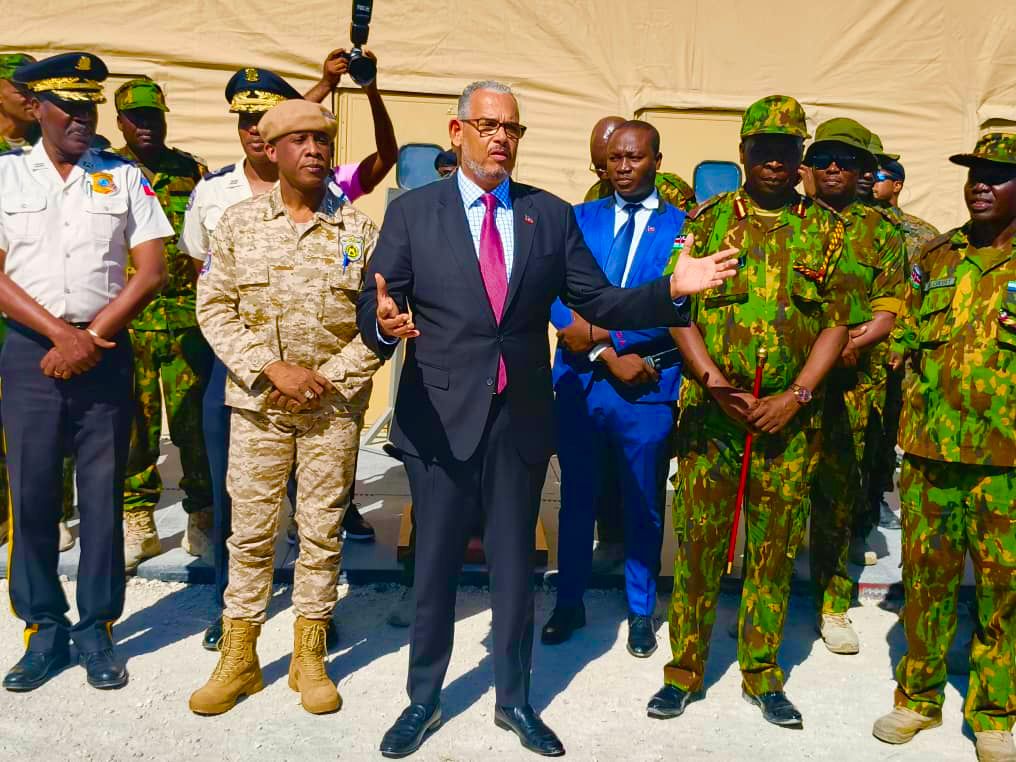 Haiti Prime Minister Alix Didier Fils-Aimé when he visited the Multinational Security Support (MSS) troops at LSA 2 to commemorate Jamhuri Day with the Kenyan police in Haiti on December 12, 2024/HANDOUT
Haiti Prime Minister Alix Didier Fils-Aimé when he visited the Multinational Security Support (MSS) troops at LSA 2 to commemorate Jamhuri Day with the Kenyan police in Haiti on December 12, 2024/HANDOUT
Haitian Prime Minister Alix Didier Fils-Aimé visited the Multinational Security Support (MSS) troops at LSA 2 to commemorate Kenya’s 61st year of independence from British colonial rule.
This happened hours after Kenyans had marked the day in the
country.
To the team on the ground, the visit was a morale booster and had shown there is general political support for the mission.
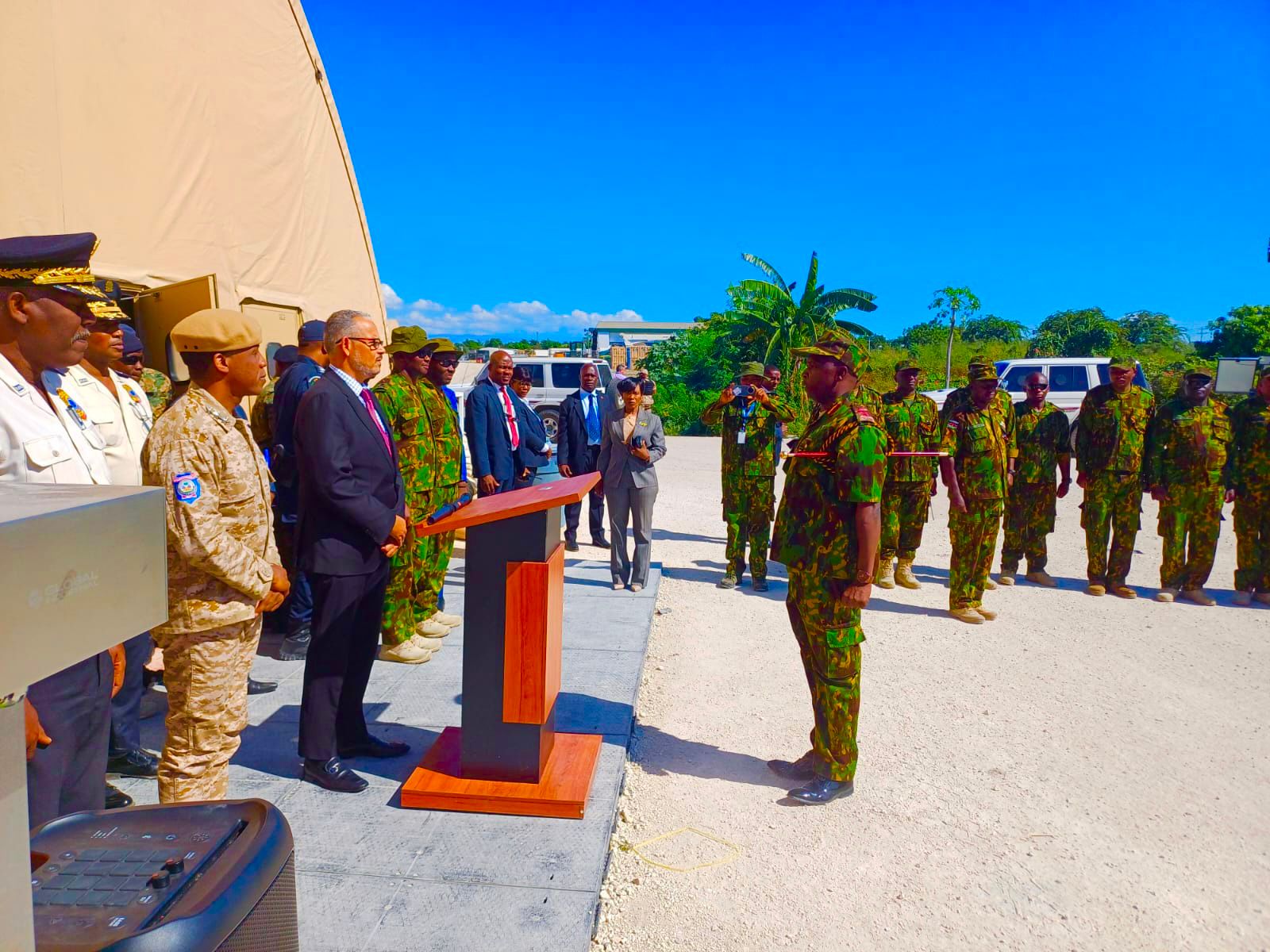 Haiti Prime Minister Alix Didier Fils-Aimé accorded a welcome salute when he visited the Multinational Security Support (MSS) troops at LSA 2 on December 12/HANDOUT
Haiti Prime Minister Alix Didier Fils-Aimé accorded a welcome salute when he visited the Multinational Security Support (MSS) troops at LSA 2 on December 12/HANDOUT
Fils-Aimé was received by the mission commander Godfrey Otunge, the MSS Force Commander; Normil Rameau, Director General of the Haitian National Police (HNP) and Colonel Kevron Henry, the MSS Deputy Force Commander.
Officials said Fils-Aimé praised the MSS troops,
led by Kenya, for their dedication and sacrifice in addressing Haiti’s security
challenges.
He reaffirmed his commitment to the Haitian people, emphasizing that their current struggles can be overcome, just as their forefathers overcame past adversities.
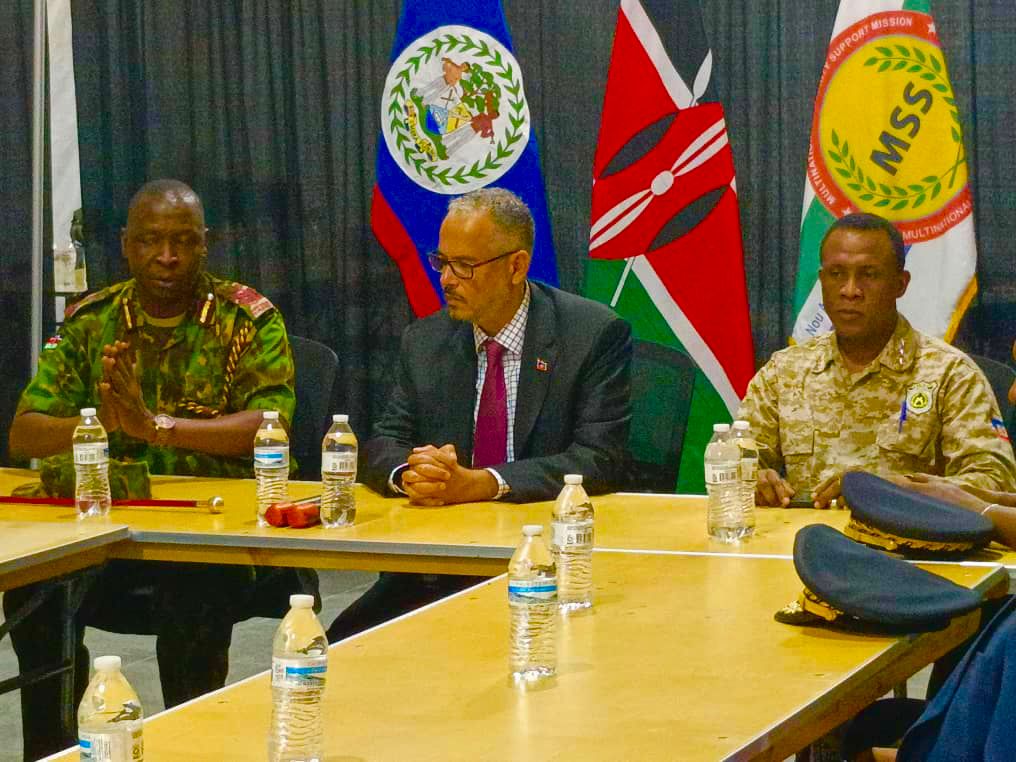 Haiti Prime Minister Alix Didier Fils-Aimé when he visited the Multinational Security Support (MSS) troops at LSA 2 on December 12/HANDOUT
Haiti Prime Minister Alix Didier Fils-Aimé when he visited the Multinational Security Support (MSS) troops at LSA 2 on December 12/HANDOUT
The Prime Minister also highlighted the MSS personnel’s determination and strong collaboration with the Haitian National Police, noting that the Kenyan contingent’s presence in Haiti has inspired hope for a brighter future.
“This exemplary collaboration is a strong symbol of international solidarity and fraternity between the two peoples, particularly in the context of global challenges such as the fight against insecurity, justice and respect for the rule of law, sustainable economic recovery, constitutional reform, and the upcoming organization of credible and inclusive elections,” he said.
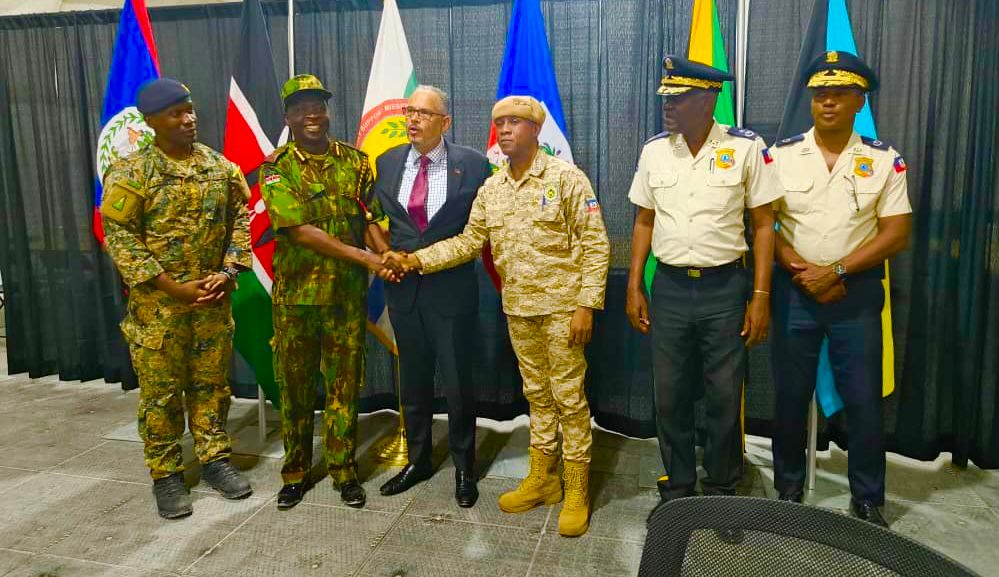 Haiti Prime Minister Alix Didier Fils-Aimé when he visited the Multinational Security Support (MSS) troops at LSA 2 on December 12/HANDOUT
Haiti Prime Minister Alix Didier Fils-Aimé when he visited the Multinational Security Support (MSS) troops at LSA 2 on December 12/HANDOUT
He extended heartfelt congratulations to the people of Kenya on their 61st Jamhuri Day, recognising the contingent’s contribution to Haiti’s quest for stability and progress.
“The Prime Minister also expressed his deep gratitude to the Kenyan government and His Excellency William Ruto for their exemplary leadership in the MMS. This mission, conducted with determination and commitment, illustrates Kenya's strong commitment to supporting the Haitian people in their quest for security and stability,” a statement from his office reads.
Otunge reiterated the MSS mission’s unwavering
support for the HNP in combating gang violence and fostering a safe environment
for democratic elections.
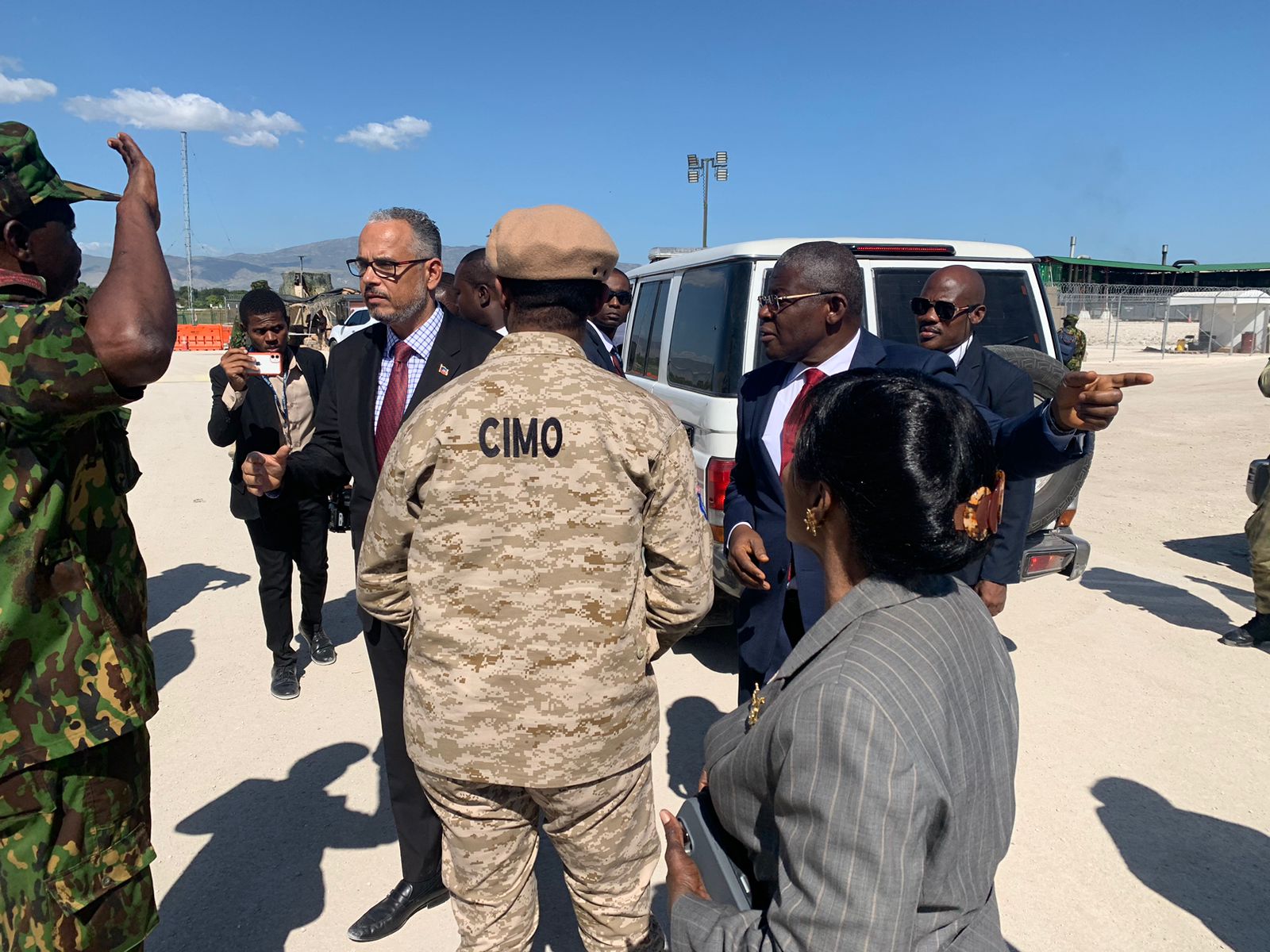 Haiti Prime Minister Alix Didier Fils-Aimé when he visited the Multinational Security Support (MSS) troops at LSA 2 on December 12/HANDOUT
Haiti Prime Minister Alix Didier Fils-Aimé when he visited the Multinational Security Support (MSS) troops at LSA 2 on December 12/HANDOUT
He emphasized the harmonious and productive relationship between the MSS and HNP, dismissing any propaganda meant to derail the mission.
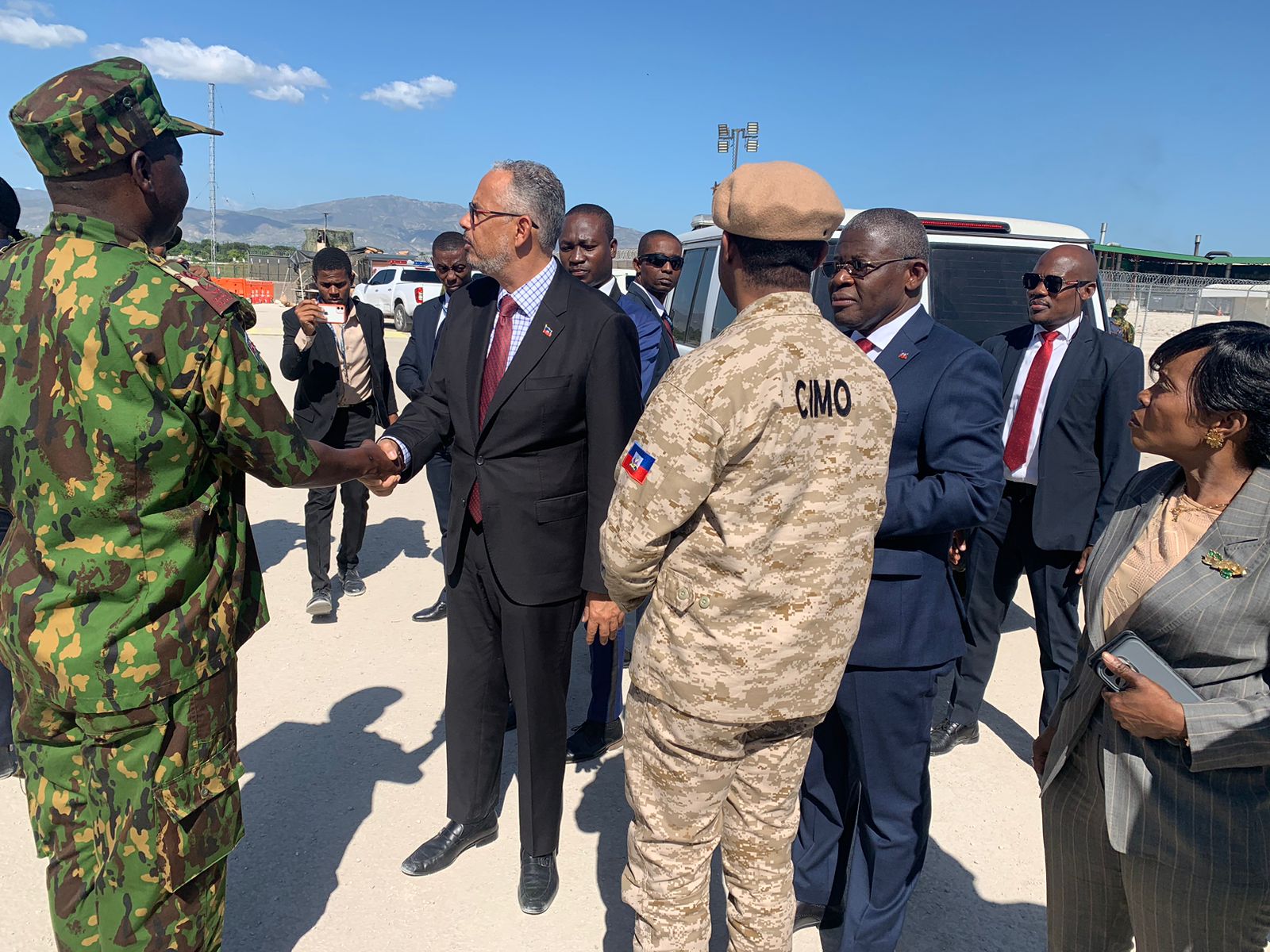 Haiti Prime Minister Alix Didier Fils-Aimé when he visited the Multinational Security Support (MSS) troops at LSA 2 on December 12,/HANDOUT
Haiti Prime Minister Alix Didier Fils-Aimé when he visited the Multinational Security Support (MSS) troops at LSA 2 on December 12,/HANDOUT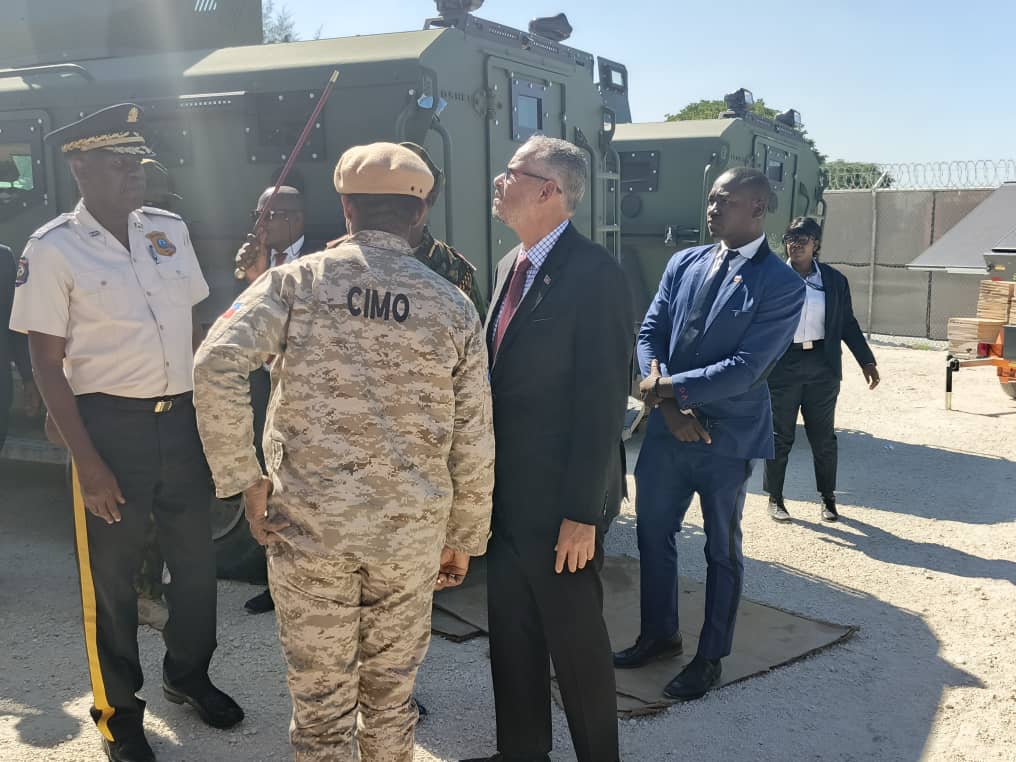 Haiti Prime Minister Alix Didier Fils-Aimé when he visited the Multinational Security Support (MSS) troops at LSA 2 on December 12,/HANDOUT
Haiti Prime Minister Alix Didier Fils-Aimé when he visited the Multinational Security Support (MSS) troops at LSA 2 on December 12,/HANDOUT
Otunge dedicated Kenya’s 61st Jamhuri Day to the Haitian people, expressing hope that peace and security will soon prevail as the mission enters its second critical phase of decisive operations.
Criminal gangs are still terrorising locals amid a push by the MSS team. More cops are set to fly to Haiti after the local airport was reopened. It was closed due to gang violence.
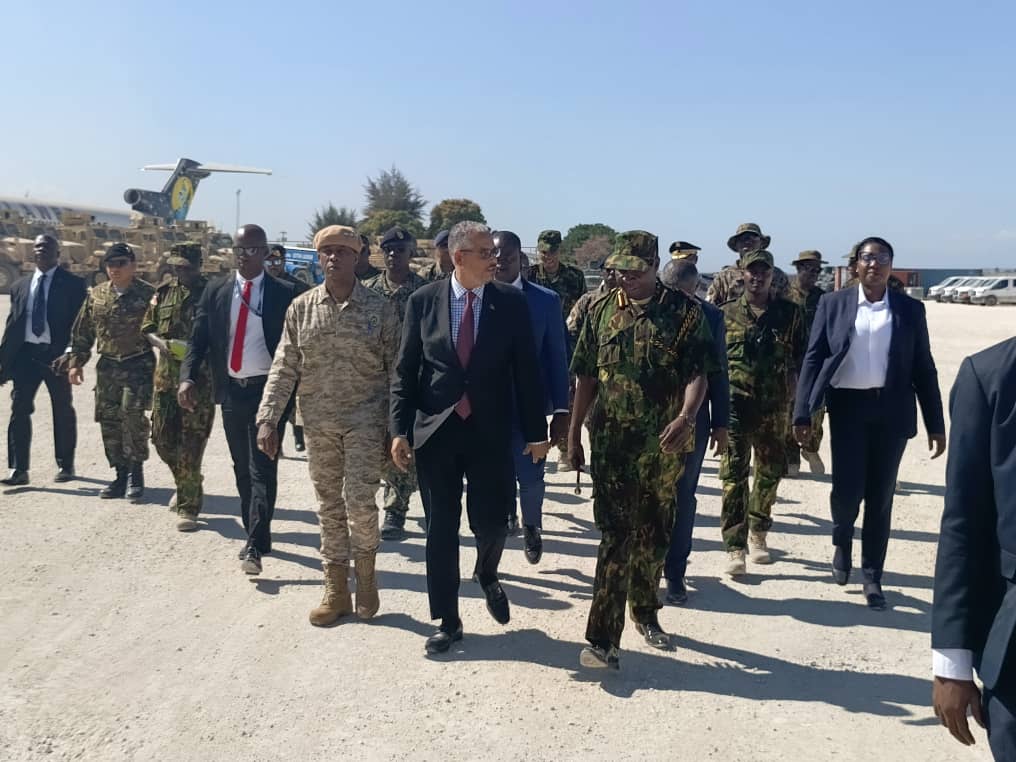 Haiti Prime Minister Alix Didier Fils-Aimé when he visited the Multinational Security Support (MSS) troops at LSA 2 on December 12/HANDOUT
Haiti Prime Minister Alix Didier Fils-Aimé when he visited the Multinational Security Support (MSS) troops at LSA 2 on December 12/HANDOUT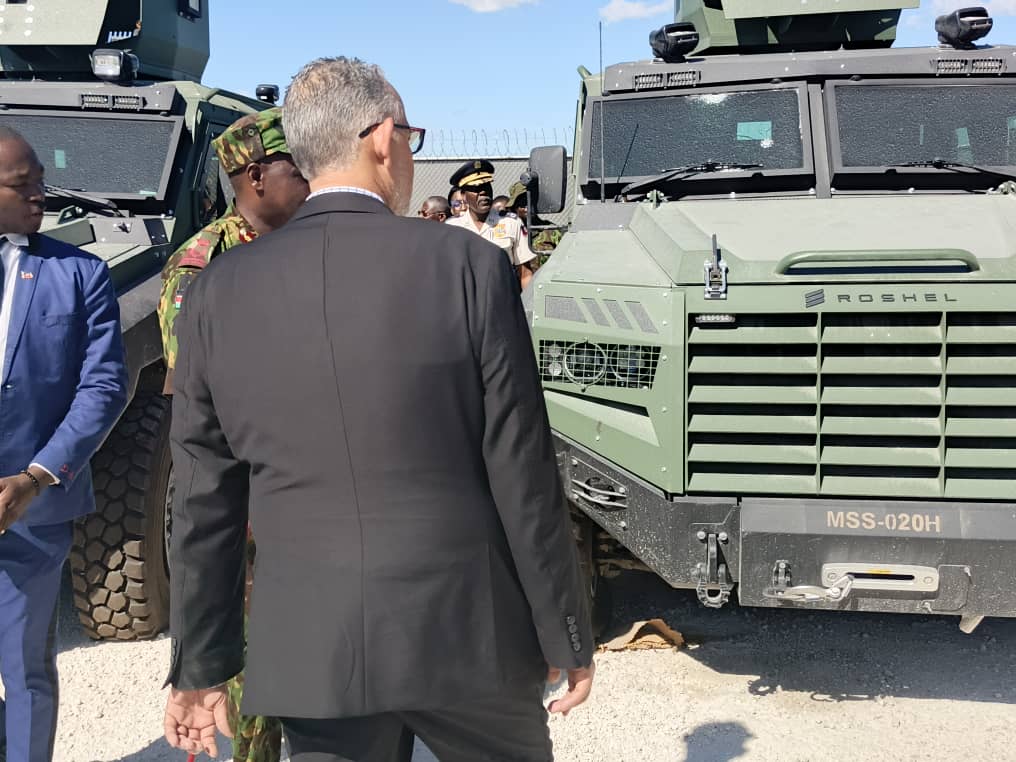
The U.N. estimates the gangs control 85
percent of the capital and have spread into surrounding areas.
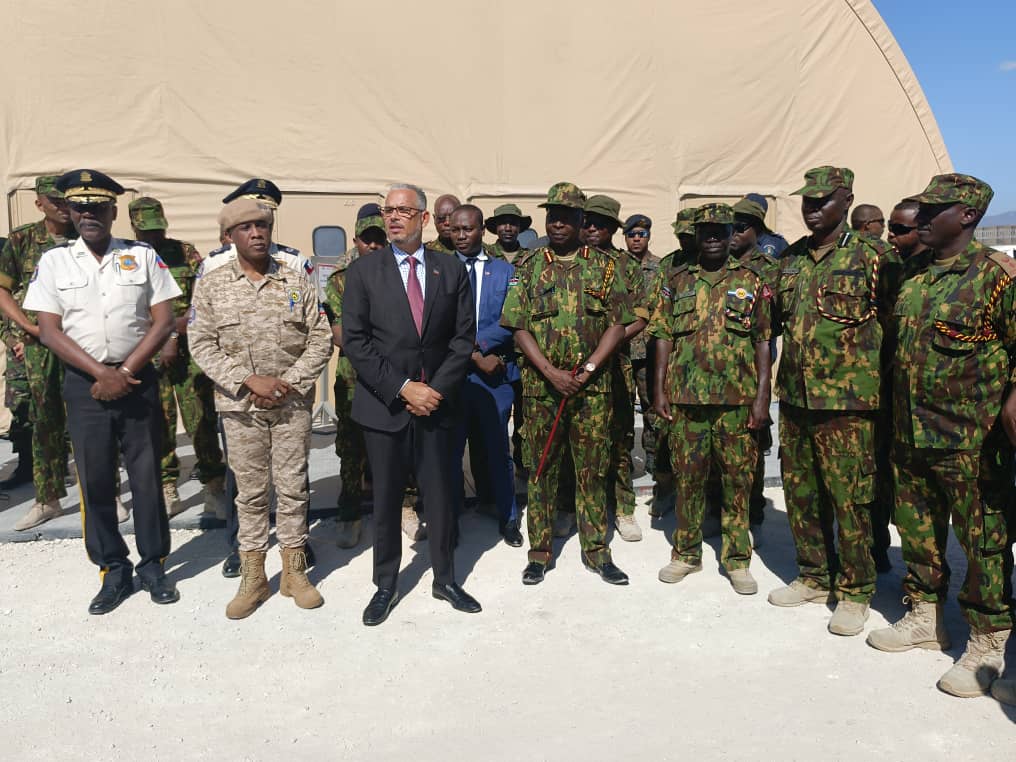
A U.N. trust fund that finances the multinational force and relies on voluntary
contributions, “remains critically under-resourced.”
U.N. trust fund that finances the multinational force and relies on voluntary
contributions has received $85.3 million of the $96.8 million pledged.
The U.S. agreed to contribute $300 million to the force, but that total is still far below the $600 million cost to deploy a 2,500-strong force for a year.












